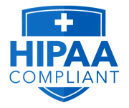ECM software is a tool businesses can leverage to effectively manage their content and company’s documents. With enterprise content management, businesses can make their data accessible across the board to facilitate collaboration and business agility while keeping it secure and preventing downtime.
Large enterprises to small businesses are all wondering how to store, organize, and present their seemingly endless data. According to IDC , global data creation and replication will continue to experience compounded annual growth and reach 181 zettabytes in 2025!
Businesses are actively employing document conversion services to save their data on the cloud. It’s also why ECM tools are now a critical element in supporting businesses to protect, modernize, and organize their data. It has led ECM providers to innovate their tech to empower organizations through their software.
So, if you’re thinking of updating your ECM tool or using it to reshape the data landscape, you need to stay up-to-date on the following enterprise content management trends:
Enhanced Software Usability to Ensure Employee Engagement
The first step to ensuring that your employees are able to adapt software and use a tool seamlessly is to ensure its easy usability. Over the past few years, ECM providers have worked greatly on improving their software usability. Businesses look for ECM services that can help them realize their cost and productivity saving.
Whether a business requires document conversion services, scanning services, or fully-functional ECM software, they need their investment to be easy to implement and use in the long term.
Today, you should look for ECM solutions with an intuitive interface, pre-configured templates, drag-and-drop UI capabilities, easy-to-use forms, and more. You should also choose a solution with customized packages to suit your distinct workflows and needs. Look for tools that offer context searching, use metadata, and provide access to data from a single app.
Business Agility Supported by a Hybrid Solution
If you need to stay on top of your game and become agile, you will need to access your data swiftly and effectively from anywhere and at any time. An enterprise content management system and cloud computing enable you to do just that. However, significant work is done on-premise, and as the digital landscape continues to evolve, businesses will need to move to the cloud.
Today, many successful businesses are adopting a hybrid approach to modernize their IT infrastructure and benefit from their content-centric tools. So, you will need to go through a phased transition and adopt an ECM solution that supports a hybrid environment to ensure smooth business scalability and flexibility.
Workplace Mobility
Providing your employees with business mobility can enable you to increase their productivity and engagement. Giving your employees access to data and organizational workflows through a mobile setup will help you get the most out of them while providing them with the comfort of working from anywhere, anytime they can.
After all, since COVID-19, businesses have adopted a hybrid working model that promotes work-from-home and working on mobile tools and devices. The helpful combination of ECM software and mobility will enable you to promote remote work and help your employees stay connected to your business processes, data, and each other.
The Era of Machine Learning and Artificial Intelligence
Enterprise content management can benefit greatly from the advancements in artificial technology and machine learning. Applying ML and AI to content is helping companies increase productivity and reduce human errors. These technologies can effectively help you extract insight from unstructured data, distribute organizational orders up, across, and down different databases, and accelerate your business processes.
When applied to data, ML and AI can fuel the following ECM-related features:
- Artificial intelligence and machine learning can quicken the process of organizing all types of data, such as texts and images, into digital forms. You can also employ document conversion services to help you make the process easier.
- With AI and ML, your ECM system can learn to index documents automatically to initiate independent workflows.
- Artificial intelligence and machine learning can enable natural language processing, which contributes to data indexing as software analyzes the spoken and written words, taking syntax and semantics into consideration. It enables you to find information easily.
- ML and AI enable self-learning to ensure that the software can search and organize relevant items and terms together.
- These technologies help enable and support regulatory mandates through automated governance by handling data according to specific parameters rooted in compliance requirements, such as OSHA, HIPAA< GDPR, and more.
The Bottom Line
New and advanced developments related to ECM tools and solutions are welcoming an exciting era of endless possibilities for businesses to automate and modernize their data organization, storage, access, and use. By following the above-mentioned ECM trends and working with a reputable ECM provider and document scanning company, you can quickly shift your data to the digital landscape for improved business agility.
Let Smooth Solutions help you with its seamless data conversion services and custom ECM solutions today!














